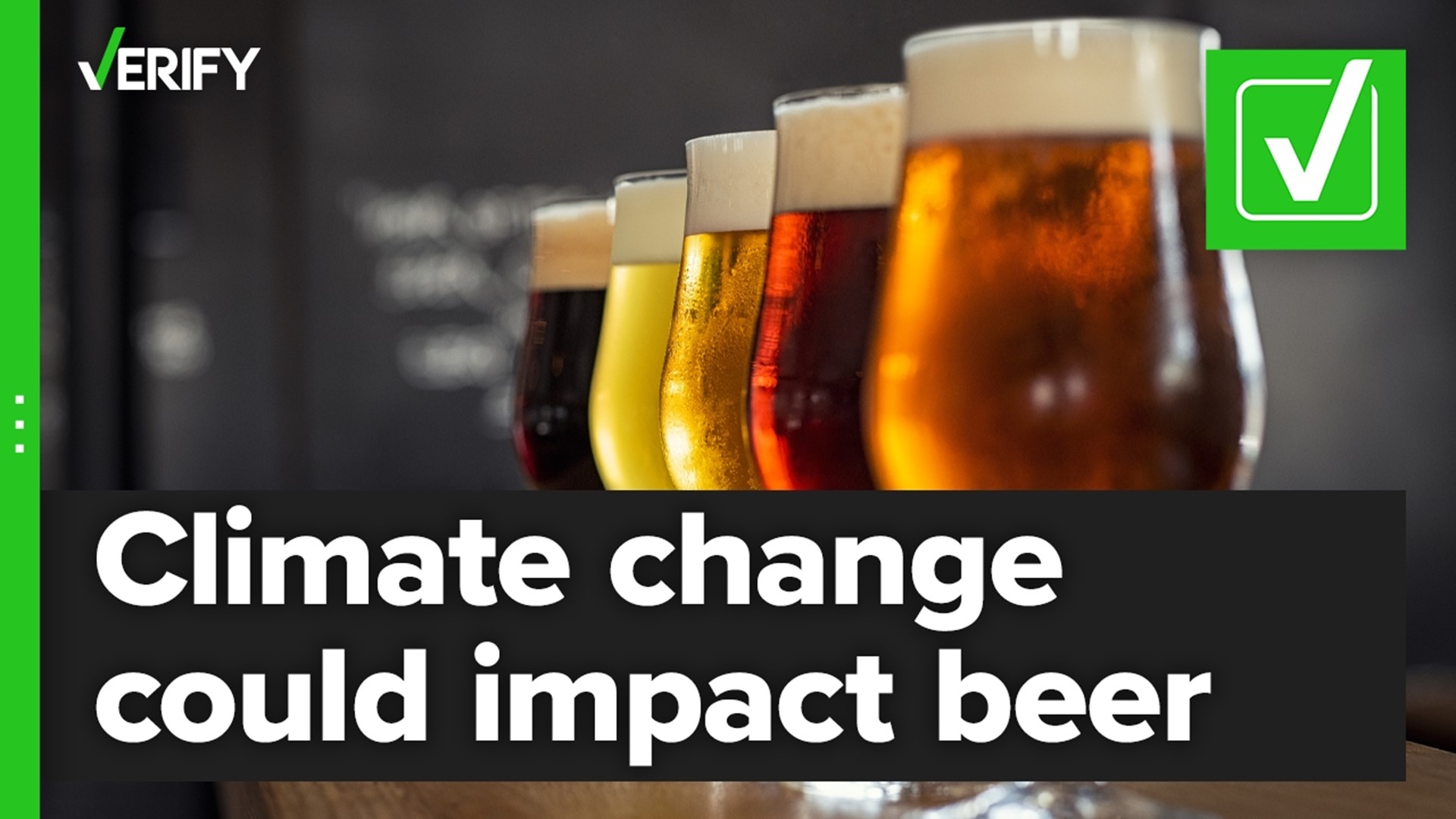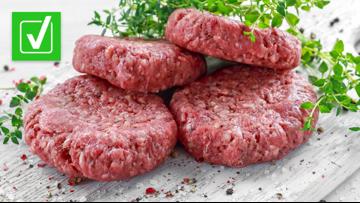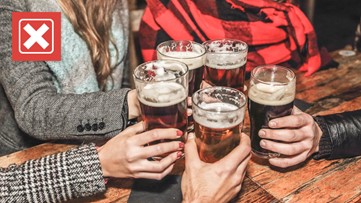Leaders from across the world are in Glasgow, Scotland, for COP26, a United Nations climate change conference. This week, VERIFY has published multiple stories about different issues related to climate change, including carbon emissions and deforestation.
Another issue tied to climate change is its impact on crops.
Researchers say it’s hard to make the subject connect with people who are used to going to the grocery store and expecting food will be there. So, they’re trying to make the topic more approachable by sounding the alarm about specific foods and beverages with wide appeal – like beer.
That’s led to tweets (this one from Greenpeace and this one from EcoWatch) that link to stories that say climate change could impact the supply of beer.
THE QUESTION
Could climate change impact the production of beer?
THE SOURCES
- Study on how climate change could affect barley
- World Wildlife Fund
- New Belgium Brewing
THE ANSWER
Yes, climate change could impact the production of beer. It could also lead to higher prices and alter the taste of beer.
WHAT WE FOUND
Two of the main ingredients in beer are highly subject to climate change.
First, there’s water. Each gallon of beer requires about five to six gallons of water to produce, according to the World Wildlife Fund. That could be problematic for drought-laden states like California, which has the most breweries in the nation.
The second main ingredient is barley, which gives beer its color and flavor. But only 17% of the world’s barley is used for beer, according to one study, and most of it is grown in only a few locations that are seeing temperatures rise and yields drop.
That study used five different climate models to project what impact a warming climate could have on beer supply, consumption and prices.
“Concurrent extremes of drought and heat can be anticipated to cause both substantial decreases in beer consumption and increases in beer price,” the study concluded.
In the study’s most severe climate events, researchers estimated the world’s beer consumption would drop 16%. That’s almost 8 billion gallons of beer, roughly equal to what the U.S. consumes in a year. Even in less extreme climate events, researchers estimated beer consumption would drop by 4%.
As for increased costs, the researchers estimated that severe climate events could lead to beer prices doubling. In less extreme climate events, prices were projected to jump by 15%.
The researchers acknowledged there are more important consequences of climate change than how it affects beer, but that studying beer may resonate with a broader audience.
The potential impact isn’t just limited to consumption and prices. A warming climate could also change how beer tastes.
Earlier this year, New Belgium made a “Torched Earth Ale” with smoke-tainted water, dandelions and drought-resistant grains to illustrate that point. The company said the idea came after studying the forecasted impact of climate change on its ingredients.
“It was just a neat experiment, mainly because climate change can be this really difficult thing to grasp and comprehend,” said Katie Wallace, director of social and environmental impact at New Belgium Brewing. “We thought it would be really interesting for ourselves, and also for our beer drinkers, to bring to life the scenario of what beer would taste like if we don't address climate change right now.”
The result, Wallace said, was an admittedly bad-tasting beer.
“Beer is something that's really special to us, to our shared experiences with our friends and our families,” she said. “And understanding how climate impacts the beer makes it a bit more real, but also bring some levity to it, right, and maybe curbs the edge off of such a serious conversation.”
More from VERIFY: Yes, chocolate production is a cause of deforestation












